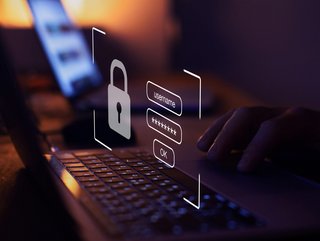Could passkeys be the start of a passwordless future?

Data breaches can impact millions of individuals. Whether it's a large-scale attack or a minor breach targeting only email or bank accounts, there is usually one common denominator which seems to be the problem - passwords.
As online shopping, banking, and social media have become integral parts of our daily routine, for many, it makes sense to simplify life and use the same password across multiple accounts, despite it being discouraged. Unfortunately, this practice can make it relatively straightforward for bad actors to compromise vital accounts, such as banks, and incur significant financial losses for both consumers and businesses.
Making passwords a thing of the past
As part of Cybersecurity Awareness Month, Google has decided to make passkeys the default sign-in option across services for its users. Users will receive a prompt to generate a passkey, which can be used to access multiple Google services without the need for passwords or two-step verification. The decision to make passcodes the standard authentication method comes in response to favourable feedback from users since their introduction on Android and Chrome in May 2022, which coincided with World Password Day.
“We’ve received really positive feedback from our users, so today we’re making passkeys even more accessible by offering them as the default option across personal Google Accounts,” Google wrote in a blog post.
A substantial 64% of users have reported that passkeys are more user-friendly compared to traditional passwords or two-factor authentication methods. In addition, Google also discovered that the process of logging in with passkeys was 40% quicker than alternative authentication approaches, resulting in significant time and energy savings for users.
Passkeys offer a range of benefits to users, including the elimination of having to recall numerous passwords for different sites and improved security by lowering the likelihood of stolen login details, password-spraying attacks, and phishing. Additionally, passkeys rely on the public key cryptographic algorithm, enhancing their security, and making them safer than traditional passwords.
Ditch passwords and be more secure
With Google having already made passkeys the primary login method for its personal accounts, Microsoft and Apple have also followed suit and embraced passkeys as a supported authentication method. Amazon has introduced passkeys for website and mobile applications, while Uber and eBay have enabled the passwordless sign-in option.
Nevertheless, Google acknowledges that passwords will remain in use for the foreseeable future because a significant number of individuals still depend on them.
According to Darren Guccione, CEO and Co-Founder at Keeper Security, the adoption of passkeys has been slow, despite their potential, with only 55 out of more than a billion websites currently supporting passkeys.
Guccione comments: “This limited support can be attributed to several factors, including underlying platform support, website changes and the fact that it’s not a default setting, so the user must take action to configure or set it up. Consistent support from major platforms and browsers is key in promoting widespread adoption of the technology.”
******
For more insights into the world of Cyber - check out the latest edition of Cyber Magazine and be sure to follow us on LinkedIn & Twitter.
Other magazines that may be of interest - Technology Magazine | AI Magazine.
Please also check out our upcoming event - Net Zero LIVE on 6 and 7 March 2024.
******
BizClik is a global provider of B2B digital media platforms that cover Executive Communities for CEOs, CFOs, CMOs, Sustainability leaders, Procurement & Supply Chain leaders, Technology & AI leaders, Cyber leaders, FinTech & InsurTech leaders as well as covering industries such as Manufacturing, Mining, Energy, EV, Construction, Healthcare and Food.
BizClik – based in London, Dubai, and New York – offers services such as content creation, advertising & sponsorship solutions, webinars & events.
- Norton: Report Highlights Rising Trend of AI Dating ScamsCyber Security
- Barracuda: Why Businesses Struggle to Manage Cyber RiskCyber Security
- Evri, Amazon and Paypal Among Brands Most Used by ScammersCyber Security
- ChatGPT at one: A valuable tool for attackers and defendersTechnology & AI






